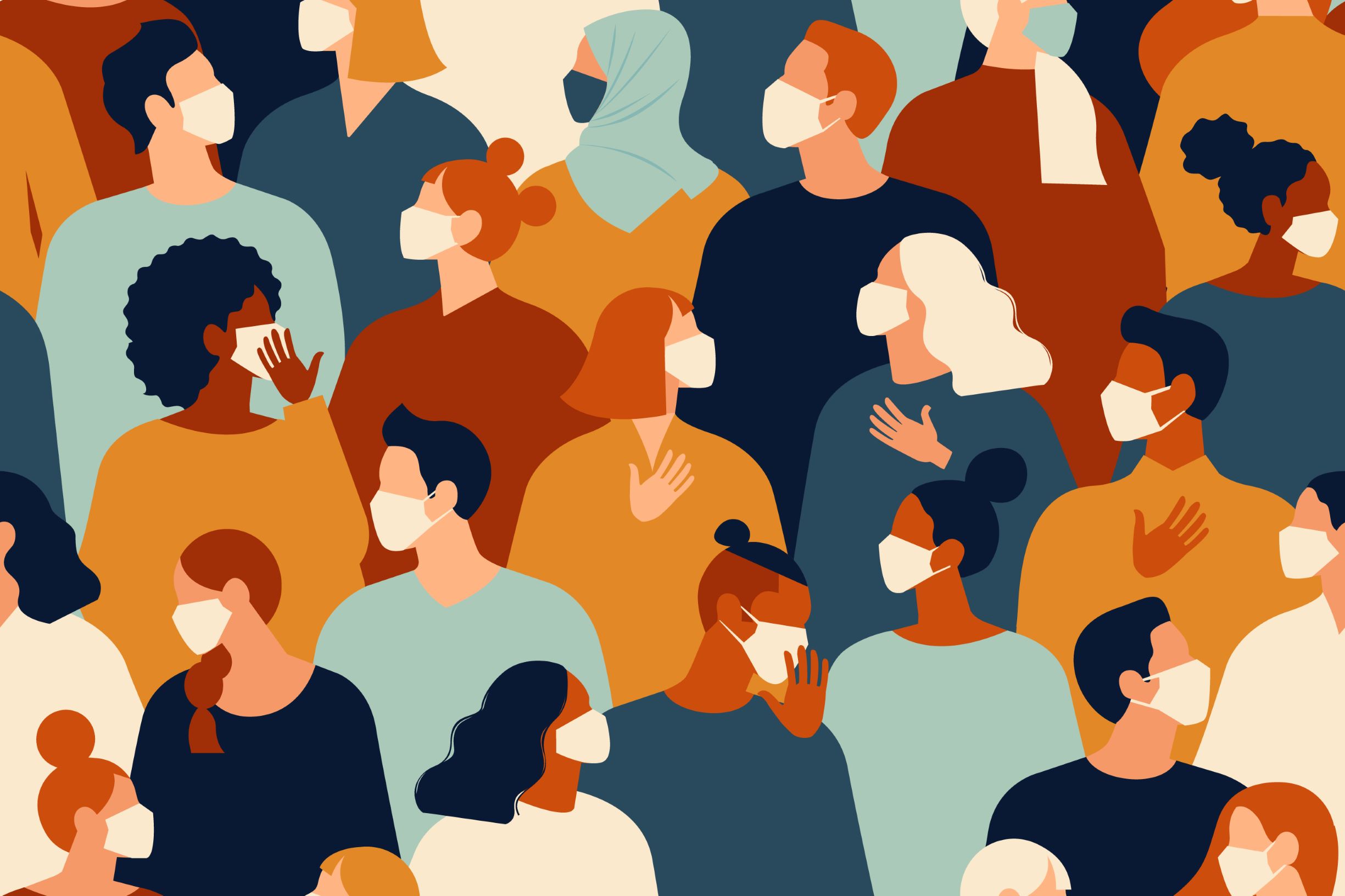Over the course of 2020, the world saw many changes due to the pandemic—changes in how we all think about and view our society, and the movements in history that led us to racial disparities during COVID-19.
COVID-19 has exacerbated the many societal inequalities that already existed long before this crucial moment, from spreading rapidly in crowded homeless shelters to laying bare the many problems of the U.S. healthcare industry.
Racial Disparities
Diagnoses and Hospitalization
As with much of American life, race plays heavily into how likely people are to be affected by COVID-19. Compared to white Americans, people of different races have a higher chance of catching the disease. Here’s a breakdown:
- Black Americans are 140% more likely
- Asian Americans are 60% more likely
- Latin Americans are 170% more likely
- Native Americans are 180% more likely
And for hospitalizations compared to white Americans:
- Black Americans are 370% more likely
- Asian Americans are 120% more likely
- Latin Americans are 410% more likely
- Native Americans are 400% percent more likely
The mortality rates for all of these communities reflect these racial disparities as well.
Access to Healthcare
The most immediate way COVID-19 affects BIPOC communities is through a lack of adequate or affordable healthcare. If you’re sick, getting proper care is the primary concern and everything else tends to take a back seat.
Whether facing an under-equipped hospital or biased doctor, many Americans of color are disproportionately impacted by an already devastating disease.
Finding affordable health insurance, healthcare, and medication is an obstacle. Considering there are record numbers of workers filing for unemployment across the nation, and Black workers—particularly Black women—have an even higher rate of unemployment, paying these medical bills or asking for time off work is all the more difficult.
In addition, pre-existing medical conditions can have a serious impact on patients’ abilities to avoid and recover from COVID-19, especially since many BIPOC communities have higher instances of such diseases. Higher levels of heart disease, diabetes, and HIV can create complications in COVID-19 patients, putting immunocompromised people of color at serious risk.
Societal Flaws
Much like the pandemic, systemic racism touches many more facets of life than we realize.
Crowded housing in low-income communities can make socially distancing from others extremely difficult. And since Black Americans disproportionately occupy the top nine essential occupations, they’re exposed more frequently and unable to abide by social distancing measures.
Within the ecosystems of larger racial communities, every area and neighborhood is affected differently. Undocumented Latin American workers often live in rural, underserved communities with limited access to medical care and no health insurance. The Indian Health Service (IHS), which cares for Native Americans living on tribal reservations, struggles with a severe lack of hospital beds and intensive care units.
Prisons, where socially distancing is extremely difficult, were hit particularly hard during the pandemic. In fact, more than 10 percent of the millions of Americans in correctional facilities contracted COVID-19. And since Black and Latin American people are incarcerated at a far higher rate than white people, you can guess who was most affected.
Finding a Solution
There are many inequalities in who has the ability and privilege to stay safer and healthier during the pandemic. In order to correct these imbalances, help needs to be brought to communities of color by better supplying public hospitals and clinics, listening to the direction of trusted community leaders and organizations, and connecting patients in need with free and easy access to healthcare.
The time has come to re-examine the way our healthcare system operates and to ensure that through the rest of the COVID-19 pandemic and beyond, healthcare is not afforded only to those with privilege, but available and accessible to all.
G3 Life Sciences wants to help aid in these efforts. Contact us to learn more about our support for patient recruitment and patient advocacy services.
